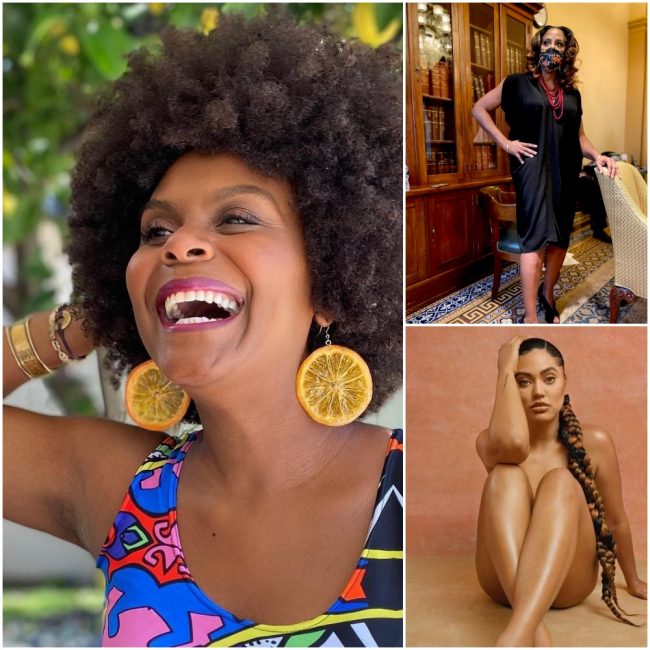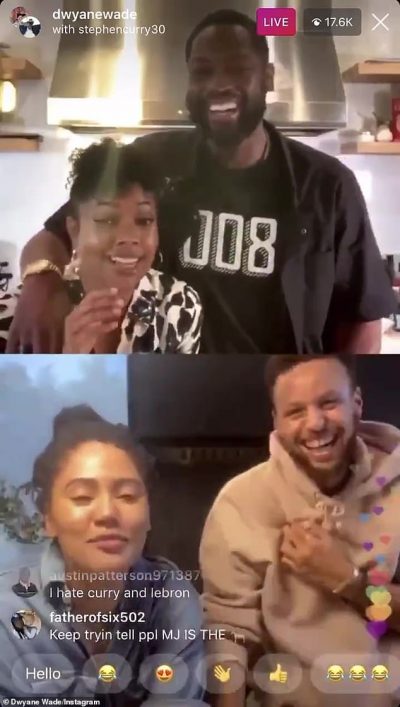
Hello World,
As it’s March, Women’s History Month, it’s especially meaningful that I’m back with my monthly roundup of blog posts and or magazine articles for black Christian women! Below is my Top 10 monthly roundup of blog posts and or magazine/newspaper articles for black Christian women for February, but you don’t have be a black Christian woman to to check them out. As usual, let me know if you like my list! Enjoy and share!
1. “The Naked Truth: Ayesha Curry Has an Image Consistency Problem. And Here’s How to Fix That” by Ericka B.
Excerpt: In 2015, outspoken Christian entrepreneur and chef, Ayesha Curry, tweeted, “Everyone’s into barely wearing clothes these days huh? Not my style. I like to keep the good stuff covered up for the one who matters.” Fast forward to 2021, and she is now posing naked for a magazine shoot and clapping back at critics of her immodesty while denying that she ever told women to cover up in the first place. Despite Curry’s strategic posing to obscure certain body parts and pointing out that only her “shins and shoulders” are visible in the naked shot for ‘Sweet July’ Magazine’s body issue, many would argue that too much of the “good stuff” is being revealed. See more at: eewmagazineonline.com
2. “Vegan Star Tabitha Brown Is Writing an Inspirational Book and a Cookbook: ‘Such a Blessing'” by Sam Gillette
Excerpt: Tabitha Brown — the vegan food star known for her uplifting videos on TikTok — wants to encourage her followers in a new way. Brown is writing an inspirational book, Feeding the Soul (Because It’s My Business), PEOPLE can reveal exclusively. The new book will be published by William Morrow on Sept. 28 — and her own cookbook will follow. “I literally wake up and pinch myself at the thought of my life today versus four years ago! Then I hear my daddy’s voice in my ear, saying, ‘You only live once, but if you live it right, once is enough,’ ” the mom of three, 42, tells PEOPLE in an exclusive statement. “I couldn’t agree more! Living in my truth is enough, and it’s the best feeling ever.” “Sharing that with the world in my book is such a blessing,” she continues, “and my hope is that readers will take the same feeling away after reading it.” See more at: people.com
3. “Who is Stacey Plaskett, the Breakout Star of the Senate Impeachment Trial?” by Stuart Emmrich
Excerpt: As she began her presentation, Plaskett, 54, who was born in Brooklyn to parents from the Virgin Islands, spoke of the journey that had brought her to this historic day. “I’ve learned throughout my life that preparation and truth can carry you far, can allow you to speak truth to power,” she said. “I’ve learned that as a young Black girl growing up in the projects in Brooklyn, a housing community on St. Croix, sent to the most unlikeliest of settings, and now as an adult woman representing an island territory speaking to the U.S. Senate.” See more at: vogue.com
4. “U.S. Voting Rights Activist Stacey Abrams Nominated for Nobel Peace Prize” by Terje Solsvik& Gwladys Fouche
5. “I Left the Black Church, but Its Influence Endures” by Shakilya Lawrence
Excerpt: Power, prestige and notoriety seemed to come from one’s standing within the church’s social hierarchy, which was sometimes exploited for personal benefit. The more I witnessed this duality and hypocrisy within the church, the more my perspective changed. By the time I entered college, I was questioning both my faith and organized religion, while starting to explore spirituality. Similar sentiments are commonly expressed by young Black adults today, and have been echoed by many of my closest friends. Though not all of us have moved towards spirituality, we’re all intrinsically connected due to our exposure to the Black church and its enduring influence in our lives. See more at: rewire.org
6. “Yolanda Pierce on Grandmother Theology, Black Jesus and Mariology” by Adelle M. Banks
Excerpt: Dean Yolanda Pierce of Howard University School of Divinity has been shaped by, and now teaches, womanist theology, the study of religion through the lens of gender, race and class. The first woman to lead the predominantly Black theological school in its 150-year history has written a book chronicling how that theology stretches back generations before the term was used. “In My Grandmother’s House: Black Women, Faith, and the Stories We Inherit” was released Tuesday (Feb. 16). See more at: religionnews.com
7. “Rev. Suzan Johnson Cook’s Black Women in Ministry Program Gains $1 million Grant” by Adelle M. Banks
Excerpt: A new program pairing Black women in ministry with mentors has received a $1 million Lilly Endowment grant. The Rev. Suzan Johnson Cook, former U.S. international religious freedom ambassador, and her home church, Union Baptist Church in Harlem, New York, have partnered on the R.E.A.L. THRIVE Initiative. The program includes women in the New York and Washington metropolitan areas as well as in Florida, Kentucky, Louisiana and Texas. The R.E.A.L. acronym stands for relationship building, equipping and expanding, access and leadership and legacy development. It will feature two groups of 25 senior pastors and church planters who will serve as mentors for women representing about a dozen denominations. See more at: religionnews.com
8. “In Beverly Jenkins’s Romance Novels, Black History is Front and Center” by Carole V. Bell
Excerpt: The signature elements of Jenkins’s work come together in spectacular form in “Wild Rain,” a boldly feminist narrative about a female rancher. “Wild Rain” is the second in the Women Who Dare series. In the first, “Rebel,” Valinda Lacey defied the Klan and some Black elites in New Orleans to start a school for formerly enslaved people and their children in the aftermath of the Civil War. In “Wild Rain,” Spring Lee defies family and societal expectations by running her own horse ranch in Wyoming Territory, where women in the United States — white and Black alike — first gained the right to vote. See more at: nytimes.com
9. “Auburn University Renaming Two Residence Halls to Honor Black Alabama Women” by Tandra Smith
Excerpt: Two of Auburn’s residence halls will soon be renamed in honor of two Black women from Alabama. Both Tiger Hall and Eagle Hall will bear Bessie Mae Holloway’s and Josetta Brittain Matthews’ names respectively, according to a release from Auburn University. The announcement comes after a Feb. 5 Board of Trustees’ meeting. See more at al.com
10. “This Orphan Has Found Her People” by Hope Venetta
Excerpt: However, in 2016, several people on my mother’s side got together and began research of our family history. They revealed their findings at a family reunion. It was your typical African American family reunion – a cookout held at a park, complete with matching T-shirts. It was here that I learned about my great-great-great-great grandmother, an enslaved woman on a Wake County, NC plantation. Her name was Feely. For some reason, finding her made me feel connected/complete/whole in some way. See more at: hopevenetta.com
If you know of any black Christian women bloggers and or writers, please e-mail me at jacqueline@afterthealtarcall.com as I’m always interested in expanding my community of black Christian women blog, magazines and websites. As I noted before, while this is a roundup of interesting blog posts and or magazine and newspaper articles for black Christian women, you don’t have to be one to appreciate these pieces 
Any thoughts?


